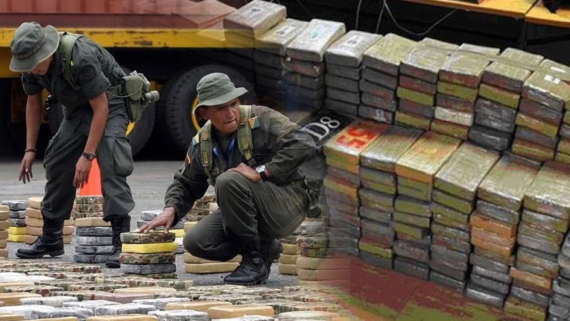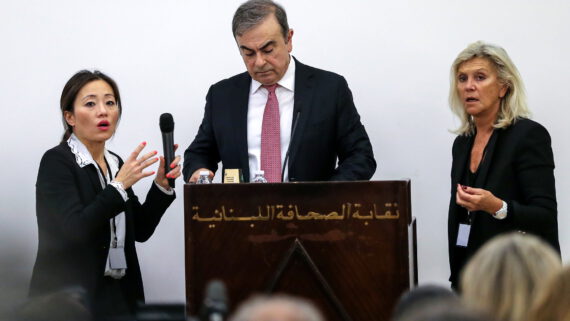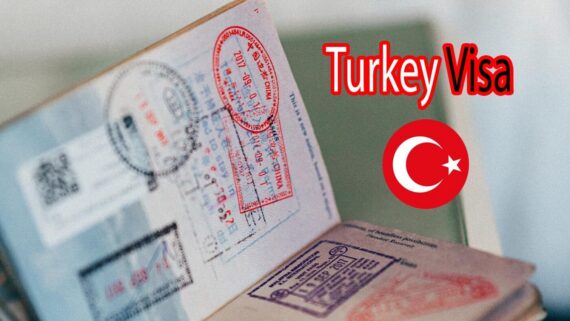An investigation or prosecution related to conspiracy or an organized crime offense is an extremely serious matter. A conviction could result in a lengthy prison sentence, substantial fines, and the seizure of assets. Organized crime refers to serious criminal activities that are planned, coordinated, and carried out by individuals operating together on an ongoing basis. Our organized crime defense lawyers specialize in cases involving racketeering, illegal gambling, loansharking, and other organized crime-related offenses. We provide comprehensive legal representation, including thorough investigation and evidence collection, strategic communication with courts and prosecutors, and skilled courtroom advocacy to protect your rights and interests.
Extortion, Racketeering, Organized Crime in Turkey
Since the 1970s, individuals from Turkey’s underworld had been the focus of a series of scandals that rocked the country’s political establishment. The notorious real-life mob boss Sedat Peker has electrified Turkey with a series of YouTube videos over the last six weeks in which he has levelled an array of allegations – including murder, rape, rampant corruption and drug trafficking – at prominent Turkish government figures.
The organised criminal groups
The organised criminal groups in Turkey, was mainly constituted in the form of private security firms enforcing security contracts and providing businesses with security. Such organised criminal groups, mainly formed by former high-ranking ministry officials and sportsman also trained within the army, organised a system of protection racketeering by “taking over a specific territorial zone and defining it against rival racketeering groups”. The protection racket was enforced by means of violence and intimidation, and every commercial or business activity within the territorial zone of control was forced to pay protection money in order to suffer damage. Leaders do not participate directly in committing crimes but mostly act indirectly by giving orders.
Turkish mafia
The Turkish mafia is an “industry which produces, promotes, and sells private protection”. The mafia also offers genuine services like the collection of debts or delayed payments. The mafia does not select the territory on which to impose a protection racket; rather, it prepares the territory by generating a demand for security and protection through a high level of insecurity and uncertainty. This can be done by committing minor crimes which generate the perception that the situation in regard to criminality and security has changed. Restaurants, pubs, and night clubs are extorted mainly by groups with stronger organisational structures.
The activities of the orginised criminal groups are focused primarily on the following crime fields: drug trafficking and smuggling(especially cocaine and herroin), arms trafficking, property crime, economic crime, smuggling of illegal immigrants and crime associated with nightlife. bribery, fraud, gambling offenses, money laundering, financial and economic crimes, obstructing justice or a criminal investigation, murder for hire, the sexual exploitation of children, murder, kidnapping, gambling, arson, robbery, extortion, and dealing in obscene matter.
Extortion & Racketeering
Extortion is a criminal activity that, when it is systemic (spread throughout the country and stable over time) is linked to organised crime groups, which use extortion for different purposes. When extortion is committed on a regular basis, it turns into a racketeering practice.
The term ‘racketeering’is an illicit form of business by acquiring the connotation of extortion. One of the simplest forms of racketeering in the United States during the 1920s was the achievement of a monopolistic position within a market sector by means of corruption, protection and, if necessary, violence. One of the techniques most widely used by racketeers in the United States at that time was to offer protection to businessmen in exchange for bribes. By providing protection, the organised criminal group gains control over a specific sector within the illegal area and may achieve some sort of monopoly by eliminating other “competitors” seeking to sell protection. The construction of illegal monopolistic markets is achieved by violent means, and extortion is one them most frequently used.
Extortion Racketeering
Extortion racketeering is developed from the protection of businesses against losses due to robbery, fraud and other property crimes whenever the extortionists themselves create the conditions for that protection to be needed.
Extortion racketeering is used by organised criminal as a means to gain control over specific market sectors such as construction, seaports, waste disposal, bars, night clubs, restaurants, large shops. Extortion racketeering does not only occur in legal markets; it is also perpetrated against actors mainly operating in illegal markets and within the so-called underworld.
When extortion racketeering is committed in legal markets, it mainly affects businesses operating in the construction industry, harbour areas, public transport, and waste collection. Besides these economic sectors, where the purpose of extortion racketeering is mainly to eliminate competitors and create monopolistic cartels, restaurants, bars, night clubs and retail activities are also easy victims of extortionists. In these cases, extortion racketeering is mainly characterized by the imposition of protection services and the use of violence.
With reference to the need for protection and the alternative source of guarantees sought by illegal actors, it is important to note that illegal activities are carried out in contexts where their perpetrators are unable to rely on the police or the criminal justice system for the solution of the conflicts. They must operate in conditions where no rules or laws can be enforced, with the consequence that they are not entitled to rights of any kind. Illegal enterprises act within an economic context where no sovereign power can be established and no super partes authorities can guarantee compliance with specific rules of conduct.
Extortion racketeering in illegal markets resembles the imposition of services such as those aimed at “solving problems and resolving disputes”. By means of the extortion, the perpetrators then aim at controlling particular areas of illegal activity. Extortion racketeering is carried out by organised criminal groups in order to keep the influence areas of legal and illegal actors separate and distinct. Extortion racketeering serves the purpose of protecting illegal markets. By collecting extortion money from individual criminals, organised criminal groups establish a form of tax collection, and this alternative fiscal system may facilitate the establishment of monopolistic areas.
Functions
Extortion racketeering enables the mafia to gain control over a specific territory and its economic and politic activities. Moreover, the regular use of extortion also consolidates the ‘mafiosa culture’ . In fact, the entrepreneurs or shop-owners that have to deal with the mafia gradually become used to the presence of the mafia in their affairs and in their territory, and they often make collusive agreements.
Extortion racketeering is the main source of financing for mafia-type criminal organisations. The income collected from extortion payments is put into the so-called “common fund”, which is the group’s main financial basis. This money is used for the group’s main expenses: purchasing arms, financing its activities, and paying its legal costs;
Extortion racketeering enables the mafia to penetrate the legitimate businesses being extorted; and when entrepreneurs are no longer able to pay the extortion money, the mafia group takes over their businesses. Extortion is a means used by the mafia to infiltrate the legal economy. This is also one of the main differences between common criminality and mafia criminality.
Selection of victim
The victim is targeted not randomly but according to his/her vulnerability. His/her business has to be carried out in the territory where the mafioso group is able to exercise his power and the business must be of interest to the mafia. Other key features in selection of the victim seem to be the instruments and infrastructure necessary for the production of his/her income. These must be exposed and well visible, so that they are easy targets for extortionist offences and attacks. If restaurants, shops, hotels, agricultural machinery or vehicles are destroyed, the owner’s business is blocked. After the first attacks the key role in the development of the extortion against the victim is played by the victim. It is up to him/her to decide whether to pay or to resist the mafia.
In case resistance option is chosen, and most of the time it is accompanied by desperation and confusion on the part of the entrepreneur, the mafia returns on the offensive and decides how to convince the victim to pay. In most cases, the extortionists decide to step up the pressure on the selected victim, mainly through anonymous night-time telephone calls, threats of violence against the victim’s children or close relatives. The message is that the entire family will be the target if the entrepreneur does not pay the extortion money.
If the victim tries once again to resist, the strategy commonly used by the mafia to test the victim’s effective vulnerability/capacity to resist is a bomb attack against the shop or damage to its shutters or the victim’s front door. Arsons is also sometimes used to intimidate the victim. In all cases, the decisions on the violent means to use to subdue the victims are mainly dependent on the mafia’s aim: either to persuade the victim to pay the protection money or to make an exemplary attack that demonstrates the mafia’s power to other entrepreneurs. In other cases the mafia does not want to take all the risks related to such attacks and therefore proceeds through minor criminal acts that make the victim even more afraid of more violent attacks in the future.
The main victim of organised crime is the person who sells illicit services to the public. Extortion is the business of organised crime, and criminals themselves are seen as easy targets. In fact, a pivotal criterion used by racketeers to identify victims is visibility, which of course also depends on the illegal activities in which they are involved. For example, prostitutes or bookmakers cannot conceal themselves while doing business because they would lose their clients. In so far as actors providing illicit goods or services cannot hide from their clients, nor can they hide from potential extortionists.
Payable amount
The mafia group assesses the economic resources of the victim in order to calculate a payable amount of extortion money. This sum is calculated so that the victim is willing to pay it without calling in the police. The amount of extortion money is not merely imposed on the victim but is also subject to negotiation: in fact, this stage in the victim/extortionist relationship is also of importance for establishing some sort of complicity between the two parties, and it is not rare for the victim to be grateful to the extortionists, who normally accept a smaller amount of money that is certain to be paid by the victim. This perverted relationship between the extorted and the extortionist often assumes the features of the “Stockholm syndrome”.
The amount of extortion money requested is not fixed once and for all: it is elastic both to the necessities of the criminal group and to the economic situation of the victim. In fact, if the financial resources of the criminal group are depleted, the extortive demands will increase in their amount. On the other hand, mafia criminal groups are also understanding towards the victim if, for example, s/he is in economic difficulties. This relationship, which is mostly dissembled as friendship, increases the victim’s gratitude to the extortionists. Of course, this is not only a matter of gratitude and esteem, but also of trust and possible future joint economic relations and affairs.
National and foreign criminal groups
Extortion racketeering is carried out by both national and foreign criminal groups. Organised criminal groups involved in extortion racketeering also engage in drug producing/trafficking, illegal activities related to prostitution, smuggling of cigarettes, protection activities.
Offense of Establishing Organisations for the Purpose of Committing Crimes
Article 220 of the Turkish Criminal Code regulates the offense of establishing organisations for the purpose of committing crimes. Accordingly, any person who establishes or manages an organisation for the purposes of committing offences proscribed by law is sentenced to imprisonment for a term of two to six years provided the structure of the organisation, number of members and equipment and supplies are sufficient to commit the offences intended. However, a minimum number of three persons is required for the existence of an organisation.
Any person who becomes a member of an organisation established to commit offences is sentenced to a penalty of imprisonment for a term of one to three years. If the organisation is armed, the penalty stated in aforementioned paragraphs will be increased from one fourth to one half.
If an offence is committed in the course of the organisation’s activities, then an additional penalty shall be imposed for such offences.
Any leaders of such organisations is sentenced as if they were the offenders in respect of any offence committed in the course of the organisation’s activities.
Any person who commits an offence on behalf of an organisation, although he is not a member of that organisation, is sentenced for the offence of being a member of that organisation. The sentence to be imposed for being a member of that organization may be decreased by half. This provision shall only be applied in respect of armed organizations.
Any person who aids and abets an organisation knowingly and willingly, although he does not belong to the structure of that organisation, shall also be sentenced for the offence of being a member of that organisation. The sentence to be imposed for being a member of that organization may be decreased by one-third according to the assistance provided.
A person who makes propaganda for a terrorist organization in a manner which would legitimize or praise the terror organization’s methods including force, violence or threats or in a manner which would incite use of these methods is sentenced to a penalty of imprisonment for a term of one to three years. If the said crime is committed through the press or broadcasting the penalty to be given shall be increased by half.
Offense of Extortion Racketeering and Robbery
Article 148 and 149 of the Turkish Criminal Code regulate the offense of extortion racketeering and robbery. Accordinly, Any person who compels an individual to provide property or acquiesce in the taking of any property, by using force or threatening the life, physical or sexual integrity of the individual (or his acquaintances) or threatening to seriously damage the financial position of such individual (or his acquaintances), is entenced to a penalty of imprisonment for a term of six to ten years.
The same penalty is to be imposed if a victim is compelled, by the use of force or threats, to give a bond which will place him, or another, under an obligation to issue a document declaring the invalidity of a bond, to acquiesce in the taking of a bond, to sign a document which has the capacity of being transformed into a bond in the future, to destroy an existing bond or to acquiesce during the destruction of a bond.
If the victim is rendered unconscious and unable to defend himself as a result of any means employed, this is to be considered as a use of force in relation to the offence of robbery.
Where the offence of extortion and robbery is committed:
- with the use of a weapon;
- by concealing one’s identity;
- jointly, by more than one person;
- in a residence, workplace and their extensions or by interception;
- against a person who cannot protect himself physically or mentally;
- by taking advantage of the power to invoke fear derived from a criminal organization which exists, or is assumed to exist,
- in order to secure a benefit for a criminal organization;
- at night,
the offender is sentenced to a penalty of imprisonment for a term of ten to fifteen years.
Law enforcement response to extortion racketeering
Turkey has a special law enforcement official unit dealing in particular with the fight against extortion racketeering. Within the criminal investigation departments of police and gendemeria, special units are established for the fight against gang crime and organised crime. Within the range of their competences they also deal with cases of extortion racketeering.
Special investigative means used. In order to investigate cases of extortion racketeering, the following special investigative means can be used;
- Interception of telephone conversations
- Interception of fax transmissions
- Interception of internet transmissions
- Audio or video recording of events taking place on private premises
- Undercover operations
- Techniques of financial investigation
- Financial criminal analysis
Victim protection programmes
The main problem of all investigations in this field is to find victims who are willing to give evidence and to cooperate with police forces. With reference to the protection of, or support for, victims of extortion racketeering several programmes are envisaged as follows;
- Police protection
- Temporary relocation to safe areas
- Evidentiary rules of protection measures when testifying in court (anonymity, shielding, videoconferencing)
- Medical/psycho-social support
- Financial compensation
- Moderate financial assistance
Witness protection programmes
With reference to the protection of, or support for, witnesses of extortion racketeering, the following programmes/practices are envisaged;
- Assistance before and during the trial
- Police measures to enhance physical security
- Court procedure to ensure the witness’s safety while testifying
- Change of identity in case of extremely serious threat
- The possibility of giving evidence in a place other than that in which the person being prosecuted is situated
- The possibility of using audiovisual techniques
Contact an Organized Crime Defence Lawyer
At Bicak we have a specialist team of lawyers, attorneys and advocates available to advise and represent clients that are either involved in an investigation or have recently been charged with a criminal offence which is regarded as part of an organised crime. We will ensure that you receive robust and professional advice from our lawyers who will keep you updated throughout the legal process.
If you are at the beginning of a criminal matter and need to contact an organised crime lawyer, get in touch with Bicak Law on +90 532 377 01 06. We offer an initial fixed fee consultation, for a period of up to 60 minutes, in order that you may discuss your matter with one of our experienced criminal defence lawyers, whilst being free to explore your options. Contact us today for more information.
 English
English Türkçe
Türkçe Français
Français Deutsch
Deutsch










Comments
No comments yet.